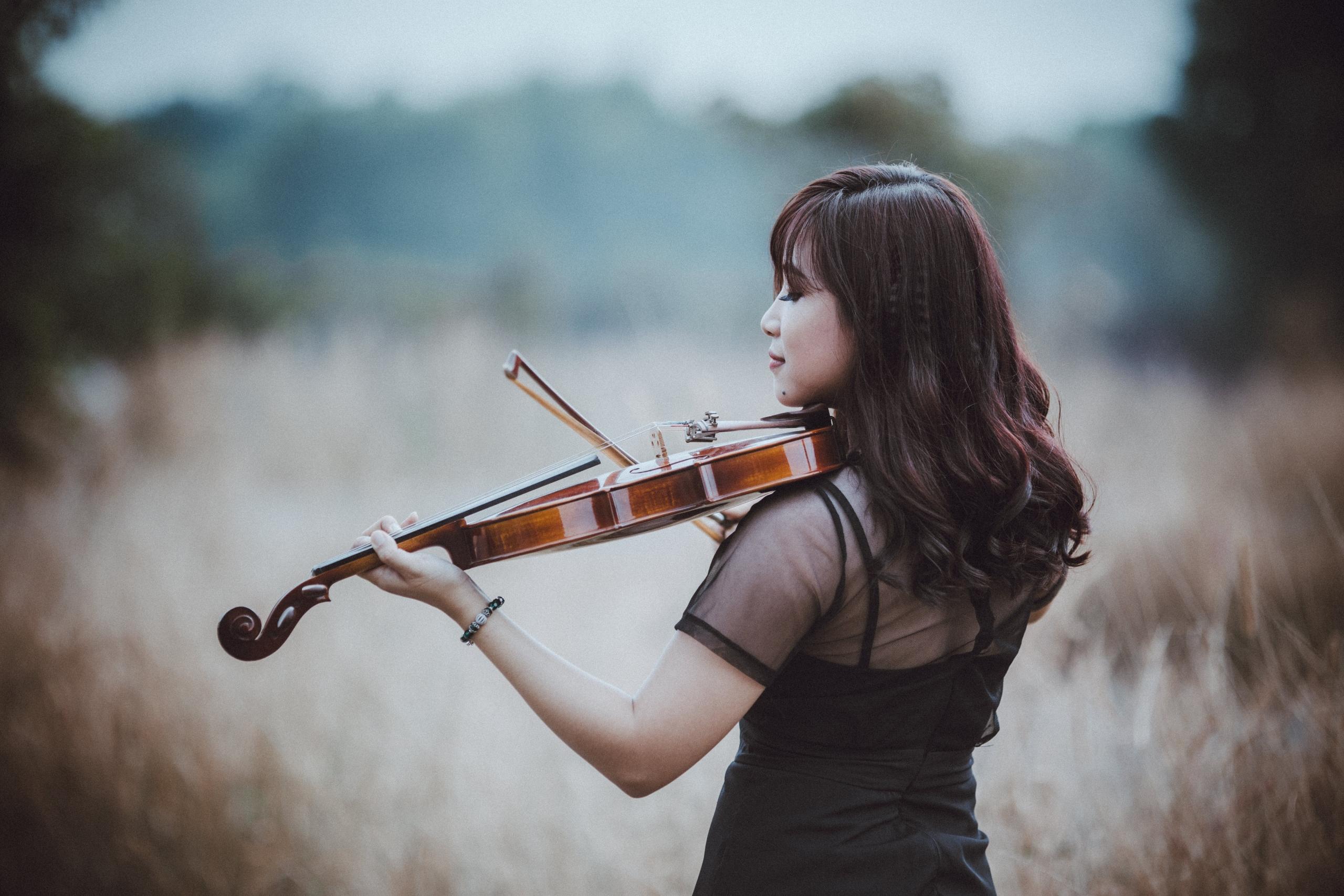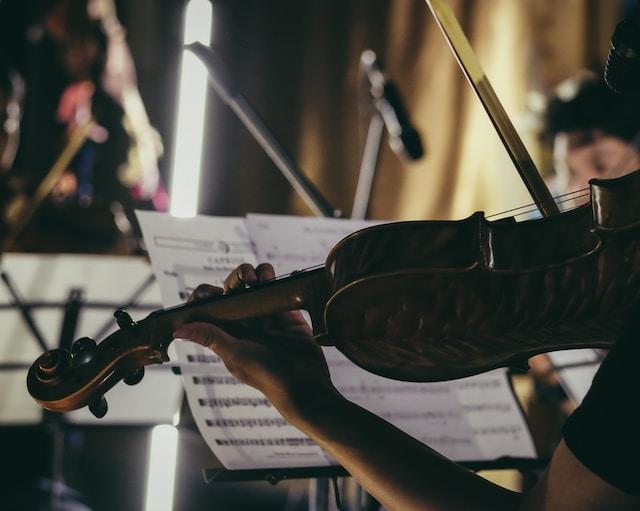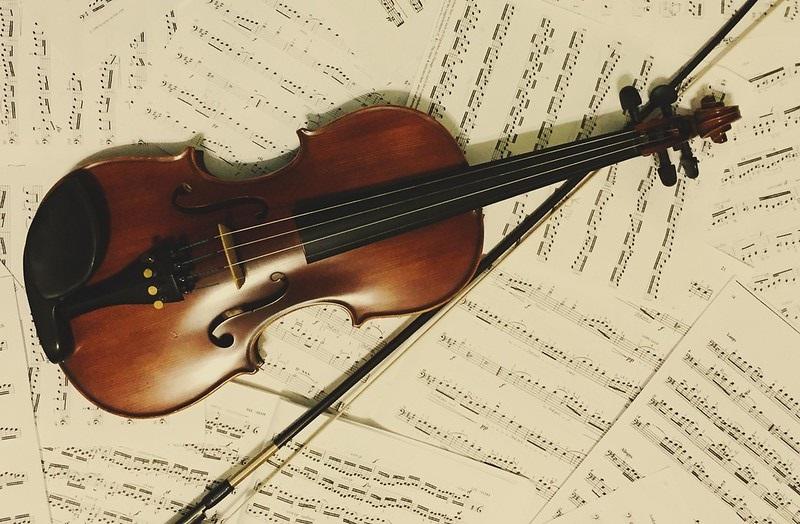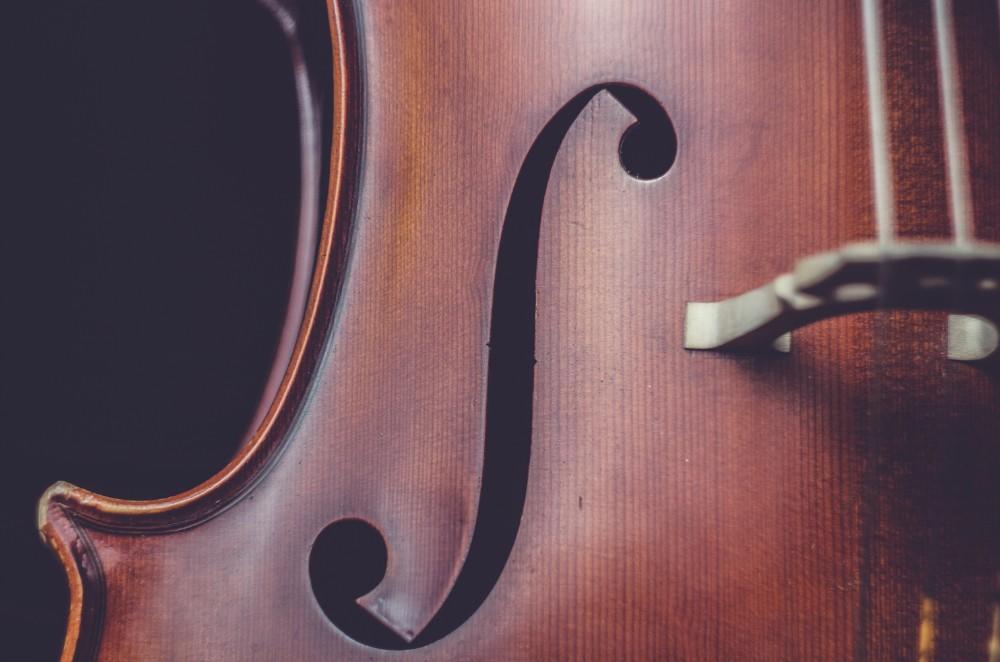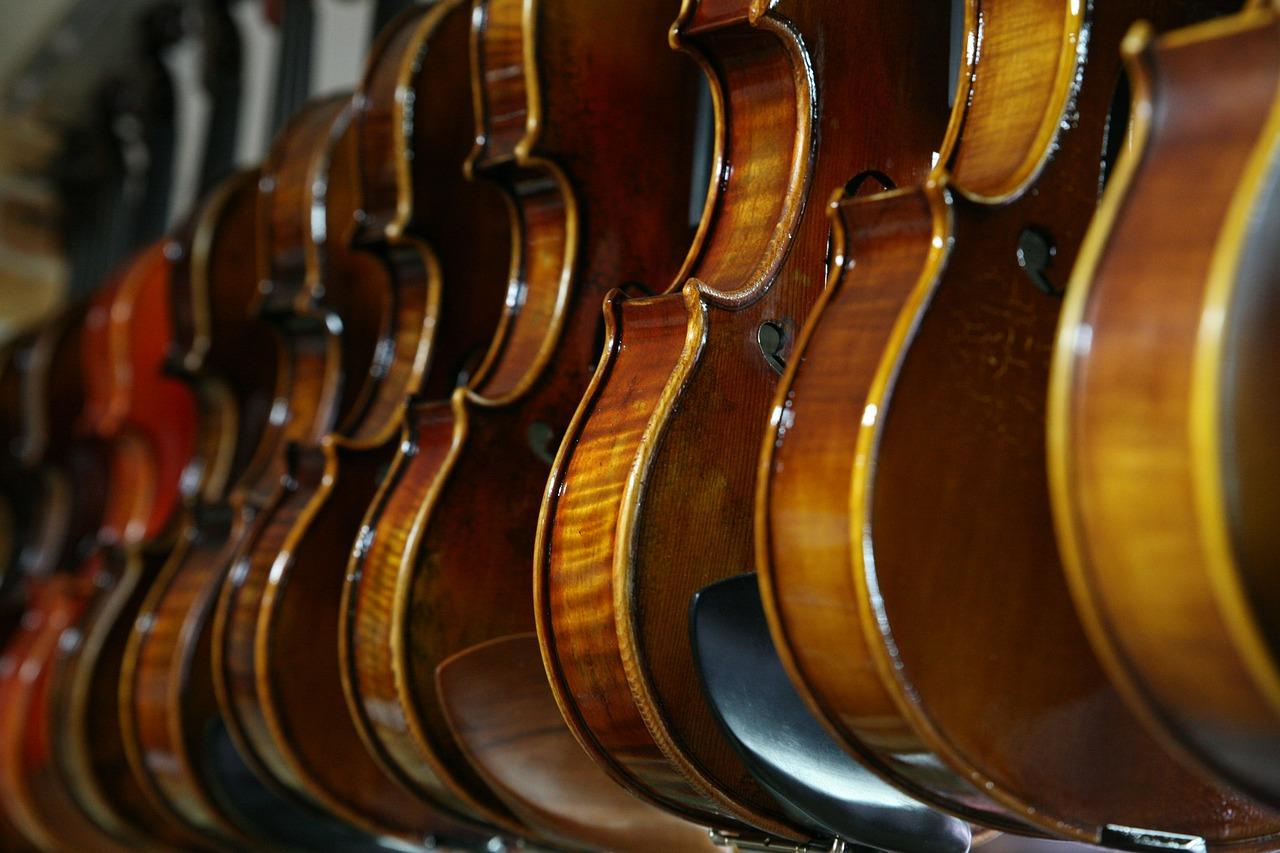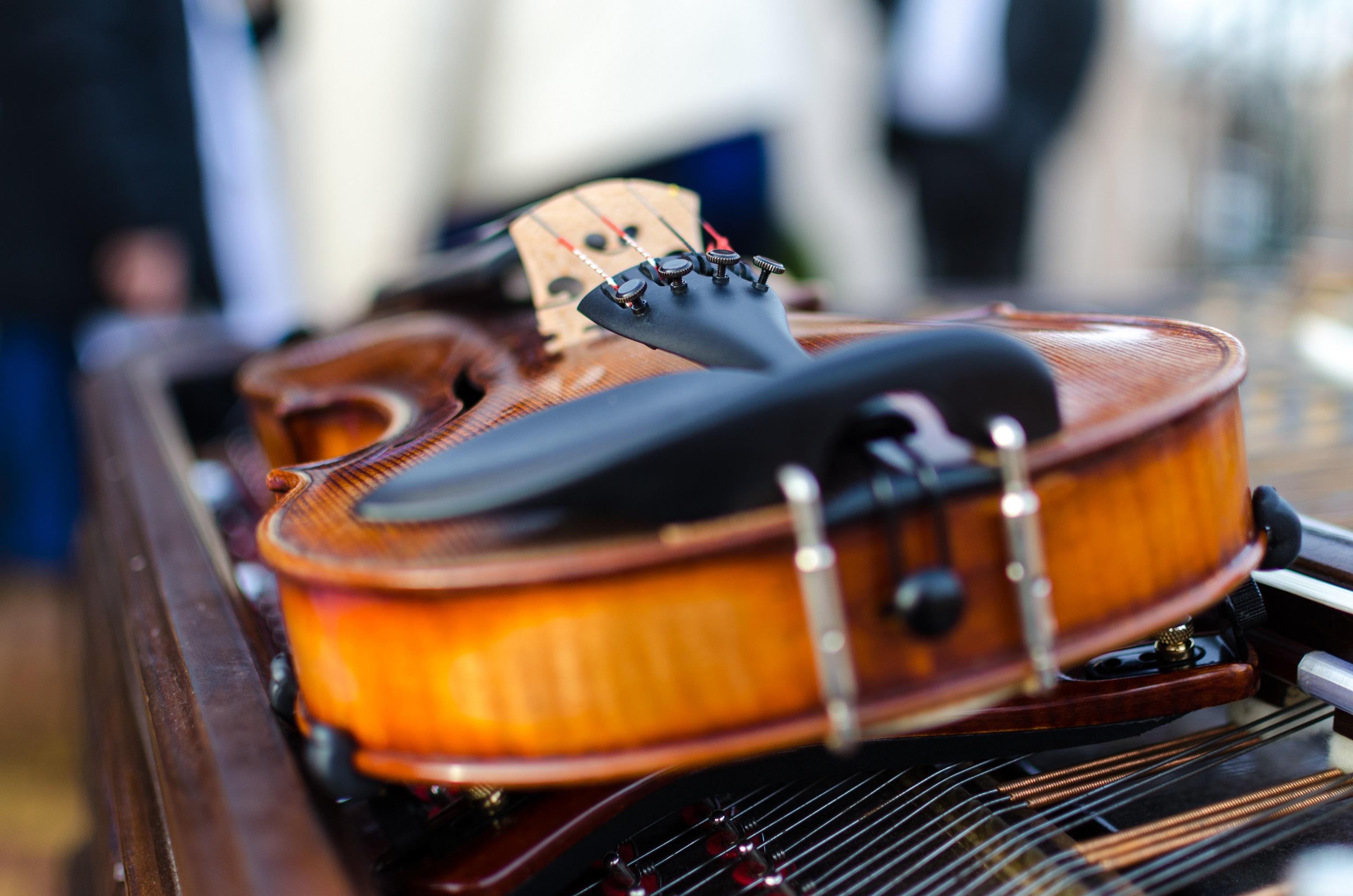What's So Special About Learning The Violin Do you know what Albert Einstein and Charlie Chaplin have in common? You probably could guess it. Yes, both of them can play the violin. A musical instrument that's part of the string family and with the largest number of players in an orchestra due to its versatility,[…]
3 May 2023∙7 minutes to read
What You Should Know Before Buying Your First Violin If you're in any way familiar with the Monterey Jazz Festival, you've surely heard of Jean-Luc Ponty. Many credit this French-born jazz violinist with pioneering violin technique in jazz music; others accord him the loftier title of Father of the Jazz Fusion genre. It's not like[…]
24 August 2021∙7 minutes to read
The Violin And Its Family In this piece, we will introduce you to the violin and its string family members: the viola, the cello and the double bass. Whether you are already a musician or you are thinking of starting up an instrument, it is fascinating to find out about the differences between the instruments[…]
1 January 2020∙6 minutes to read
Would You Like to Learn the Violin?
Whether you’ve always dreamed of performing in an orchestra, playing pop covers on YouTube, or simply learning a graceful new skill, our blog is the perfect place to start your violin journey in Malaysia.
Here, you’ll find practical tips, expert guidance, and inspiring stories about violin learning — from mastering your first scales to choosing the right instrument. Our content is designed to help beginners, hobbyists, and aspiring musicians build strong foundations and stay motivated along the way.
When you’re ready to take the next step, Superprof Malaysia connects you with experienced violin tutors across the country, offering both in-person and online lessons. Dive into our blog, get inspired, and start your path toward becoming a confident violinist with Superprof! You can even find a violin teacher for face-to-face or online lessons to help you learn to play the violin.
How To Learn The Violin And Where Let's say you've always yearned to play a musical instrument but, for whatever reason, you simply never got the chance as a child. Now, master of your own destiny, you intend to satisfy the need to express your artistic side by studying music and learning how to play[…]
15 April 2019∙13 minutes to read
Which Works Of Art Are Inspired By The Violin? Culture is not only food for the soul - Renaud Donnedieu de Vabres The violin is one of the most famous instruments in our contemporary society. Piano, clarinet, double bass, oboe, guitar, every note of these instruments, even played with genius, does not resemble the violin,[…]
16 January 2019∙7 minutes to read
How Do Violinists Play Around the World? “If it is true that the violin is the most perfect of musical instruments, then Greek is the violin of human thought.” - Helen Keller The violin, viola, and cello all originated in Europe and Italy, in particular. So does that mean that the violin is played in[…]
18 September 2018∙7 minutes to read
How to Get Better at Playing the Violin “A gift without technique is nothing more than a dirty habit” [Un don sans technique n’est rien qu’une sale manie.] - George Brassens (1921-1981), Le mauvais sujet repenti. Learning to play the violin is a great idea, especially if you're really enthusiastic about music! However, there are[…]
17 September 2018∙6 minutes to read
Playing The Violin Takes Lots Of Practice The only way to raise your proficiency in the violin is to practice. In the world of the string instruments more than any other, practice makes perfect. There is so much to learn and so many ways to learn the violin. You will need to employ targeted focus[…]
7 August 2018∙7 minutes to read
What Should You Ask Yourself Before you Buy a Violin? Whether you’re completely new to music lessons or you’re simply looking to fully commit to your musical education by purchasing a violin of your very own, the process of looking for a suitable violin can quickly become complicated. When it comes to choosing a violin[…]
5 April 2018∙7 minutes to read
Learning to Play the Violin Many of us dream of having the ability to play a musical instrument. We usually find ourselves inspired by the orchestras on the BBC Proms, or even the beauty of the musical instruments themselves as we yearn to experience the euphoria of being a part of such a wonderful sound.[…]
21 March 2018∙12 minutes to read
How Do You Start Learning to Play the Violin? The violin (or fiddle) isn’t an easy instrument to learn. It requires a lot of hours of practise and even more motivation, especially if you're trying to join an orchestra and become a concert violinist. There are very few people in this world who don’t like[…]
27 February 2018∙8 minutes to read
Top Tips for Learning How to Play the Violin The violin is often thought of as one of the harder orchestra instruments to learn and is seen as inaccessible to many. Of course, this becomes less true by the day. In recent years, new ways of learning have helped bring the violin (or fiddle) to[…]
26 February 2018∙7 minutes to read
Learn More about the Violin’s Great History Buying a violin or fiddle is good, knowing your instrument is better. As both a 16th-century invention and a musical instrument, the violin is an amazing object and full of history. From Mozart to Vivaldi via Lully, the violin underwent several changes and luthiers like Stradivarius (one the most[…]
23 February 2018∙7 minutes to read
🎼 Why It’s Worth Learning the Violin
Learning the violin is often seen as one of the most elegant musical pursuits — and for good reason. The sound of the violin can move hearts, evoke powerful emotions, and bring people together. In Malaysia, interest in classical instruments like the violin has been steadily growing, especially among young learners who are drawn to its versatility in both traditional and modern music.
From performing with school orchestras to joining community ensembles, violinists in Malaysia have many opportunities to showcase their talent. Plus, with online learning now widely available, students from anywhere — whether in Kuala Lumpur, Johor Bahru, or Sabah — can access quality violin lessons easily.
Here’s why picking up the violin is a decision you won’t regret:
🎻 Enhances coordination: Playing the violin strengthens hand-eye coordination and finger dexterity, improving fine motor skills.
🧠 Sharpens focus and discipline: Regular practice develops patience, concentration, and perseverance.
💖 Boosts emotional expression: The violin’s wide tonal range allows players to express deep emotions through music.
🎶 Improves musicality: Learning pitch, rhythm, and tone helps you appreciate music on a deeper level.
🌍 Connects cultures: Violin music transcends genres — from Western classical to Chinese folk and even modern pop.
🎶 How to Start Learning Violin as a Beginner in Malaysia
Starting the violin might seem challenging at first, but with the right approach, anyone can learn to play beautifully. Here’s how to begin your musical adventure:
🎻 Get the right instrument: Choose a violin size that fits you comfortably — music stores in Malaysia, like Bentley or Yamaha, can help you find one that suits your level.
📚 Learn the basics: Start with proper posture, bowing techniques, and tuning. These fundamentals will shape your progress.
🎧 Listen to the masters: From classical greats like Itzhak Perlman to local talents, listening helps train your ear and inspire your playing.
👩🏫 Find a good teacher: A skilled tutor can guide your progress, correct your form, and motivate you through challenges.
The violin may take patience to master, but the reward is truly magical — a timeless instrument that lets you express your soul through sound.
If you’re ready to begin, explore Superprof Malaysia, where passionate and qualified violin tutors are ready to help you learn at your own pace, in your preferred style. 🎻
Start your violin journey today and let the music of your heart be heard with Superprof!

